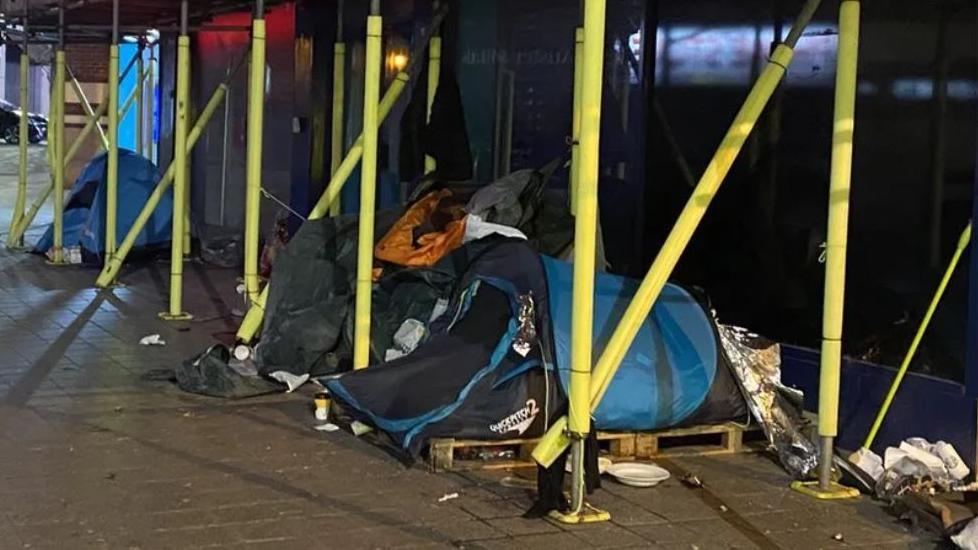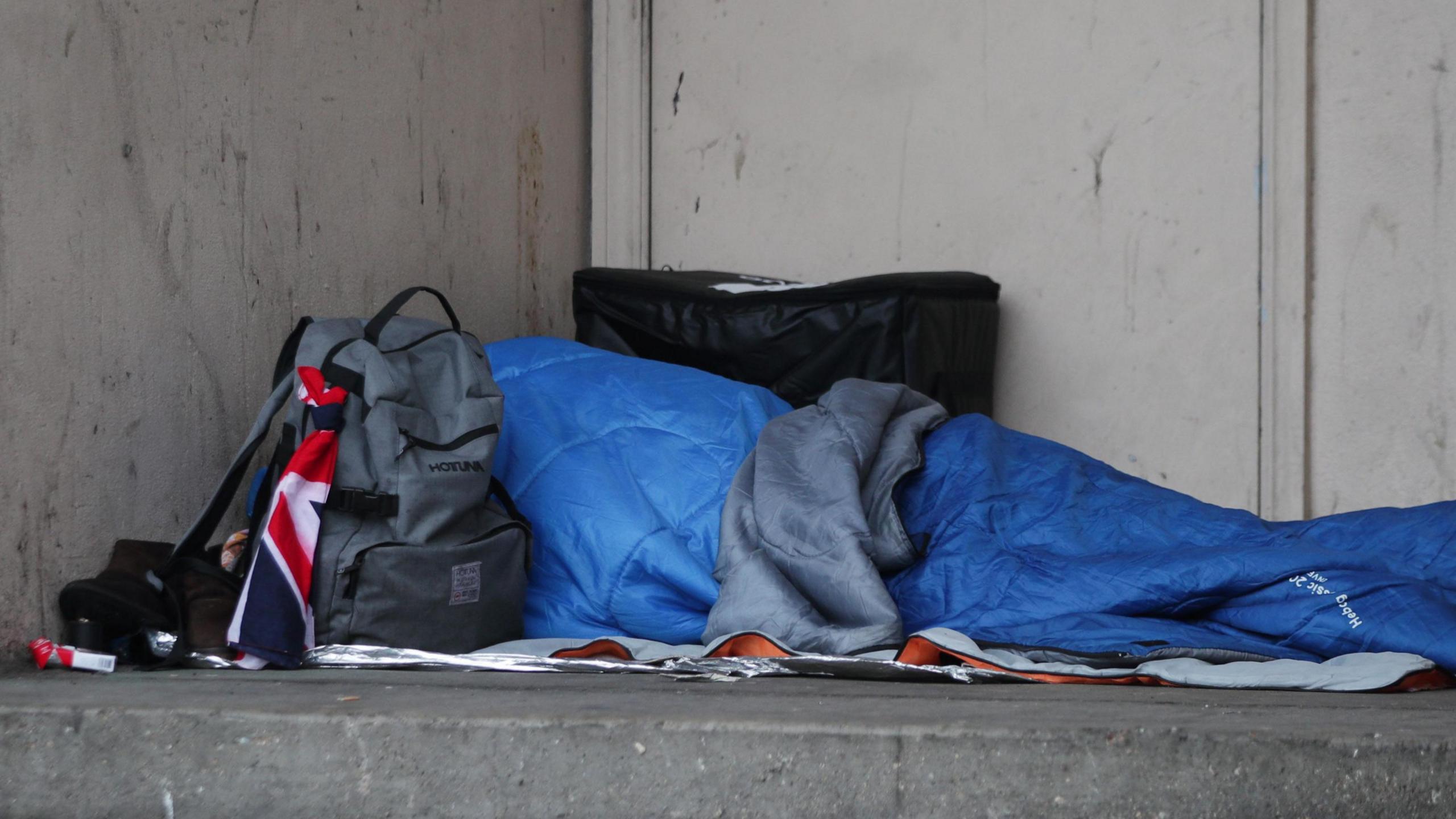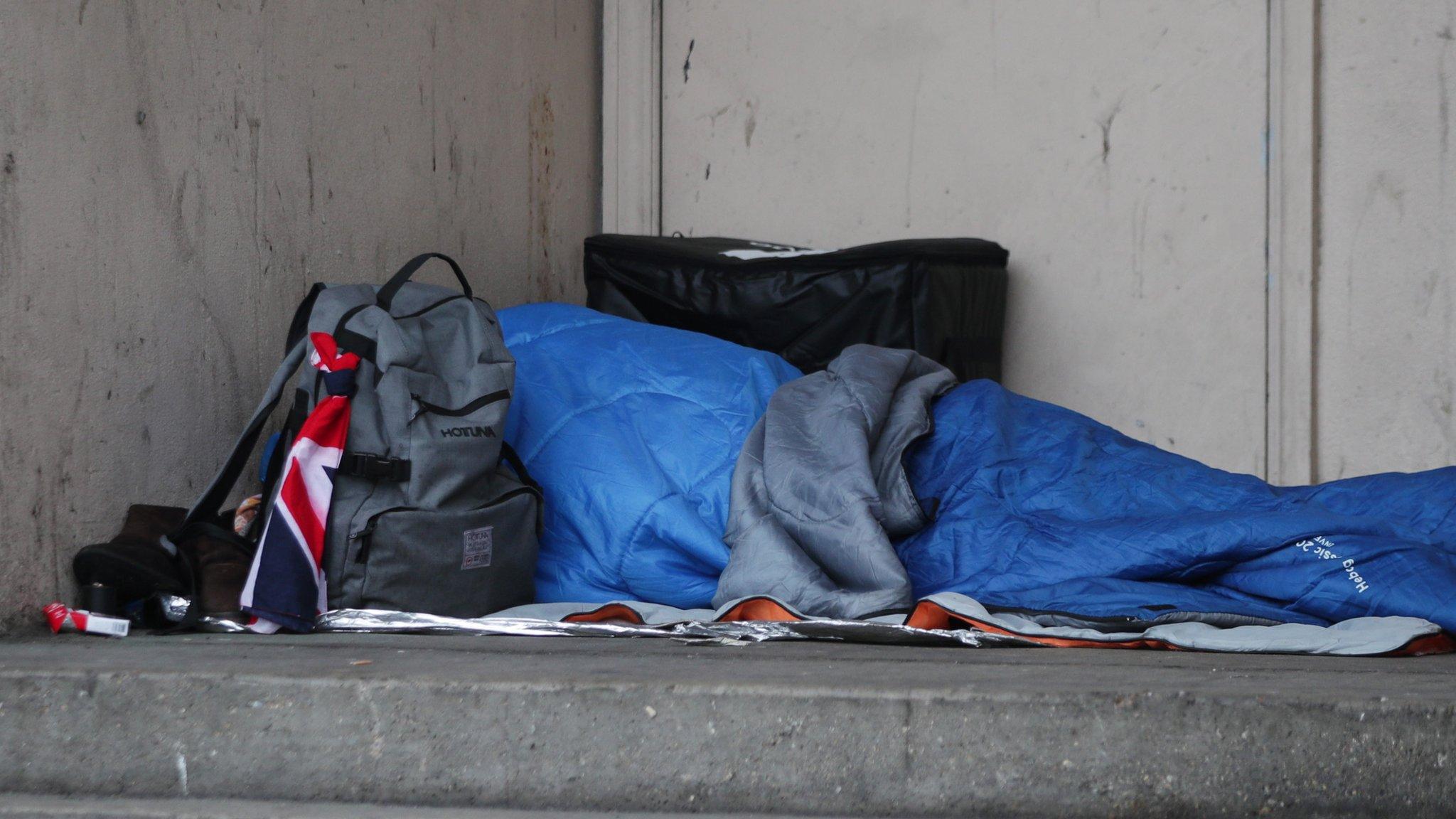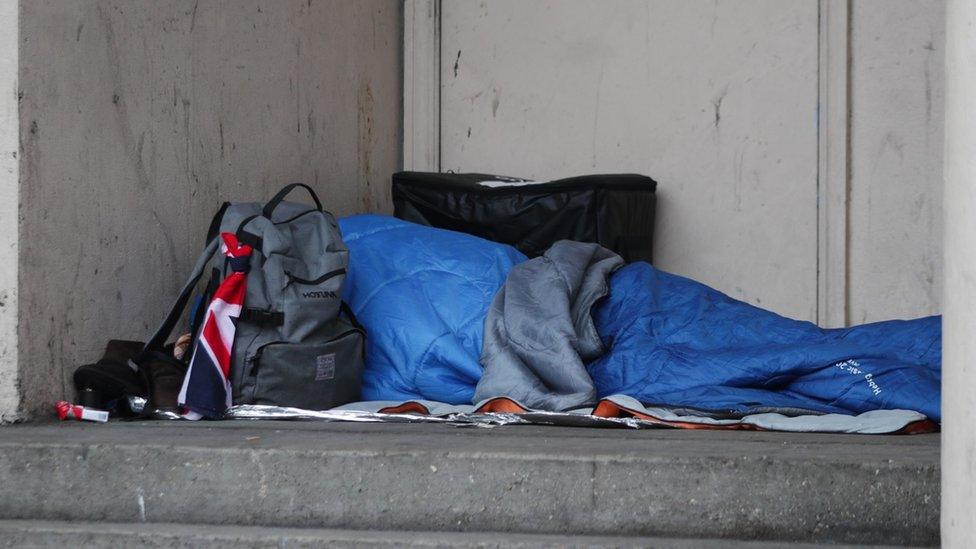Council outlines plan to tackle city's homelessness

The number of rough sleepers in Liverpool has increased by 141% over six years
- Published
A council has said it wants to make homelessness across a city "rare, brief and non-recurring".
The number of people sleeping rough in Liverpool has increased by 141% over the last six years.
The city council is asking the public for their views on a strategy, which aims to improve access to housing in times of crisis.
However councillor Sam East, cabinet member for housing, warned services were being stretched because of financial pressures.

Council leader Liam Robinson said homelessness in the city was a "complicated" challenge
A report into the city's public health earlier this year indicated the link between poor quality or unsuitable housing on physical and mental wellbeing.
Between October and December last year, the demand for homelessness assessments increased by 19% in comparison to the same quarter 12 months earlier.
Similarly, there has been a 12.1% increase in households in temporary accommodation across the same timeframe.
The document said rough sleeping had increased in recent months to unprecedented levels.
Earlier this summer, the city wide rough sleeper outreach service, delivered by the Whitechapel Centre, recorded 164 people sleeping rough, with 74 of them helped into new accommodation or supported return into existing solutions.
Mr East said "too many people face homelessness" and it presented "significant cost challenges" for the council.
He said repurposing housing stock that remained vacant was an "opportunity to be grasped".
Between 2017/18 and 2023/24, rough sleeping across Liverpool increased by 141%.
The report said one of the reasons behind this was a lack of 24-hour operations by the council's outreach team until 2022.
The number of people sleeping rough long term was described as "very high" with an increase of 44% recorded.
There had been a 12.1% increase in households in temporary accommodation across the same timeframe.
The report said the main reasons for homelessness included friends and family no longer being willing to accommodate, which counts for more than a third of cases.
The number of people left homeless as a result of domestic abuse has risen to 17% while the loss of assured shorthold tenancy stands at 15%.
'Early intervention'
The homelessness budget remains a significant area of financial risk, with an overspend in the last financial year of more than £1.3m.
This is despite an increase of £12.5m to reflect the demands on the service.
The authority said it hoped a move towards early intervention and preventative action which would lead to a reduction in costs, but an expected overspend for nightly paid accommodation in bed and breakfasts was more than £5m.
It is thought the forecasted spend for the last full financial year will have surpassed more than £21.5m, with a peak of 816 bed and breakfast bookings being reached in February.
In 2022/23, more than 1,600 people in Liverpool approached the council for help with homelessness, with 99% being assisted.
The authority's prevention rate was 17%, compared to 45% nationally.
Council leader Liam Robinson said the strategy was an "important strategic priority" in a bid for Liverpool to become a zero homelessness city, as per its 2023 manifesto, however he acknowledged it was a "complicated" challenge.
Listen to the best of BBC Radio Merseyside on Sounds and follow BBC Merseyside on Facebook, external, X, external, and Instagram, external. You can also send story ideas to northwest.newsonline@bbc.co.uk, external
Related topics
- Published28 February 2024

- Published14 November 2023

- Published8 November 2023
